
Elizabeth I was Queen of England and Ireland from 17 November 1558 until her death in 1603. She was the last monarch of the House of Tudor.

Robert I, popularly known as Robert the Bruce, was King of Scots from 1306 to his death in 1329. Robert led Scotland during the First War of Scottish Independence against England. He fought successfully during his reign to restore Scotland to an independent kingdom and is regarded in Scotland as a national hero.
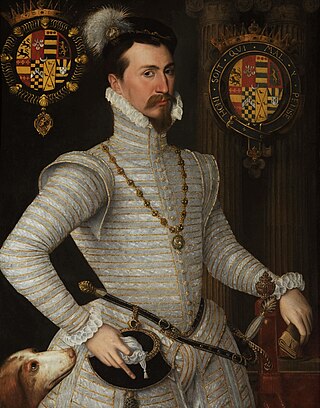
Robert Dudley, 1st Earl of Leicester, was an English statesman and the favourite of Elizabeth I from her accession until his death. He was a suitor for the queen's hand for many years.

Hubert de Burgh, Earl of Kent was an English nobleman who served as Chief Justiciar of England (1215–1232) and Justiciar of Ireland (1232) during the reigns of King John and his son and successor King Henry III and, as Regent of England (1219–1227) during Henry's minority, was one of the most influential and powerful men in English politics in the thirteenth century.
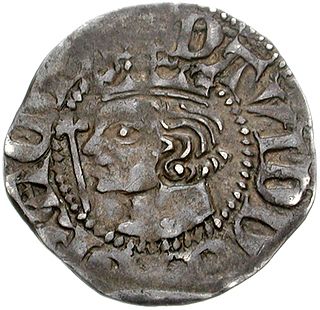
David II was King of Scotland from 1329 until his death in 1371. Upon the death of his father, Robert the Bruce, David succeeded to the throne at the age of five and was crowned at Scone in November 1331, becoming the first Scottish monarch to be anointed at his coronation. During his childhood, David was governed by a series of guardians, and Edward III of England sought to take advantage of David's minority by supporting an invasion of Scotland by Edward Balliol, beginning the Second War of Scottish Independence. Following the English victory at the Battle of Halidon Hill in 1333, King David, Queen Joan and the rump of his government were evacuated to France, where he remained in exile until it was safe for him to return to Scotland in 1341.

Sir Philip Sidney was an English poet, courtier, scholar and soldier who is remembered as one of the most prominent figures of the Elizabethan age.
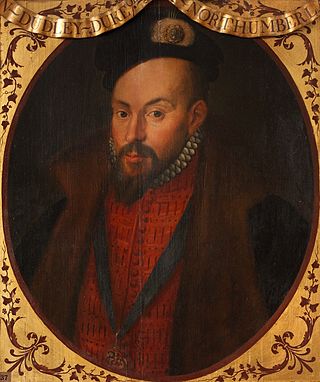
John Dudley, 1st Duke of Northumberland was an English general, admiral, and politician, who led the government of the young King Edward VI from 1550 until 1553, and unsuccessfully tried to install Lady Jane Grey on the English throne after the King's death. The son of Edmund Dudley, a minister of Henry VII executed by Henry VIII, John Dudley became the ward of Sir Edward Guildford at the age of seven. Dudley grew up in Guildford's household together with his future wife, Guildford's daughter Jane, with whom he was to have 13 children. Dudley served as Vice-Admiral and Lord Admiral from 1537 until 1547, during which time he set novel standards of navy organisation and was an innovative commander at sea. He also developed a strong interest in overseas exploration. Dudley took part in the 1544 campaigns in Scotland and France and was one of Henry VIII's intimates in the last years of the reign. He was also a leader of the religious reform party at court.

Timothy Sydney Robert Hardy was an English actor who had a long career in theatre, film and television. He began his career as a classical actor and later earned widespread recognition for roles such as Siegfried Farnon in the BBC television series All Creatures Great and Small, Cornelius Fudge in the Harry Potter film series and Winston Churchill in several productions, beginning with the Southern Television series Winston Churchill: The Wilderness Years. He was nominated for the BAFTA for Best Actor for All Creatures Great and Small in 1980 and Winston Churchill: The Wilderness Years in 1982. Aside from acting, Hardy was an acknowledged expert on the medieval English longbow and wrote two books on the subject.

The Battle of Falkirk, on 22 July 1298, was one of the major battles in the First War of Scottish Independence. Led by King Edward I of England, the English army defeated the Scots, led by William Wallace. Shortly after the battle Wallace resigned as Guardian of Scotland.
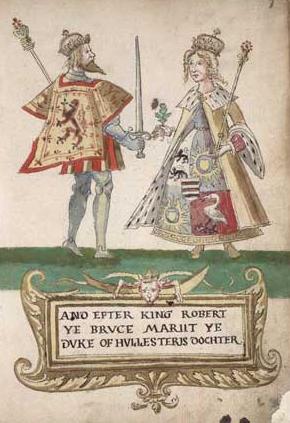
Elizabeth de Burgh was the second wife and only queen consort of Robert the Bruce, King of Scots. Elizabeth was born sometime around 1289, probably in what is now County Down or County Antrim in Ulster, the northern province in Ireland. She was the daughter of one of the most powerful Norman nobles in the Lordship of Ireland at that time, Richard Óg de Burgh, the 2nd Earl of Ulster, a member of the noble dynasty, the House of Burgh and a close friend and ally to King Edward I of England.

Thomas Dudley was a New England colonial magistrate who served several terms as governor of the Massachusetts Bay Colony. Dudley was the chief founder of Newtowne, later Cambridge, Massachusetts, and built the town's first home. He provided land and funds to establish the Roxbury Latin School and signed Harvard College's new charter during his 1650 term as governor. Dudley was a devout Puritan who opposed religious views not conforming with his. In this, he was more rigid than other early Massachusetts leaders like John Winthrop, but less confrontational than John Endecott.
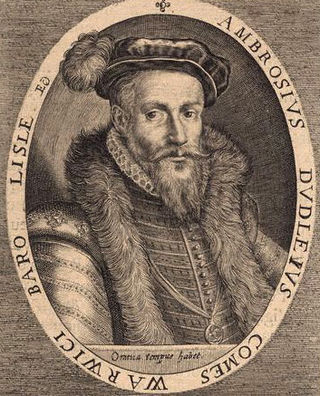
Ambrose Dudley, 3rd Earl of Warwick, KG was an English nobleman and general, and an elder brother of Queen Elizabeth I's favourite, Robert Dudley, Earl of Leicester. Their father was John Dudley, Duke of Northumberland, who led the English government from 1550–1553 under King Edward VI and unsuccessfully tried to establish Lady Jane Grey on the English throne after the King's death in July 1553. For his participation in this venture, Ambrose Dudley was imprisoned in the Tower of London and condemned to death. Reprieved, his rehabilitation came after he fought for King Philip in the Battle of St. Quentin.
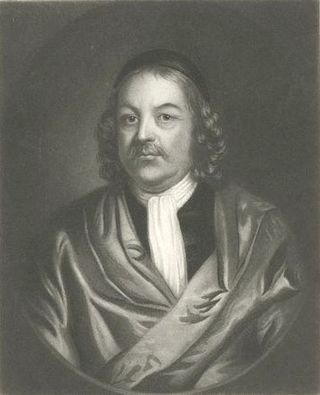
Simon Bradstreet was a New England merchant, politician and colonial administrator who served as the last governor of the Massachusetts Bay Colony. Arriving in Massachusetts on the Winthrop Fleet in 1630, Bradstreet was almost constantly involved in the politics of the colony but became its governor only in 1679.

The Anglo-Spanish War (1585–1604) was an intermittent conflict between the Habsburg Kingdom of Spain and the Kingdom of England that was never formally declared. It began with England's military expedition in 1585 to what was then the Spanish Netherlands under the command of Robert Dudley, Earl of Leicester, in support of the Dutch rebellion against Spanish Habsburg rule.

The House of Burgh or Burke was an ancient Anglo-Norman and later Hiberno-Norman aristocratic dynasty which played a prominent role in the Norman invasion of Ireland, held the earldoms of Kent, Ulster, Clanricarde, and Mayo at various times, and provided queens consort of Scotland and Thomond and Kings of England via a matrilineal line.

Edward Fiennes, or Clinton, 1st Earl of Lincoln KG was an English landowner, peer, and Lord High Admiral. He rendered valuable service to four of the Tudor monarchs.

Major-General Sir Robert Edward Laycock, was a senior British Army officer best known for his influential role in the establishment and command of British Commandos during the Second World War.

Nunney Castle is a medieval castle at Nunney in the English county of Somerset. Built in the late 14th century by Sir John Delamare on the profits of his involvement in the Hundred Years' War, the moated castle's architectural style, possibly influenced by the design of French castles, has provoked considerable academic debate. Remodelled during the late 16th century, Nunney Castle was damaged during the English Civil War and is now ruined.

Lady Mary Sidney was a lady-in-waiting at the court of Elizabeth I, wife of Sir Henry Sidney and the mother of Sir Philip Sidney and Mary Sidney Herbert, Countess of Pembroke. She was daughter of John Dudley, Duke of Northumberland, and sister of Elizabeth's favourite, Robert Dudley, Earl of Leicester.

The siege of Sluis of 1587 took place between 12 June and 4 August 1587, as part of the Eighty Years' War and the Anglo-Spanish War (1585–1604). Its capture by the Spanish formed a significant advance towards the Enterprise of England.




















